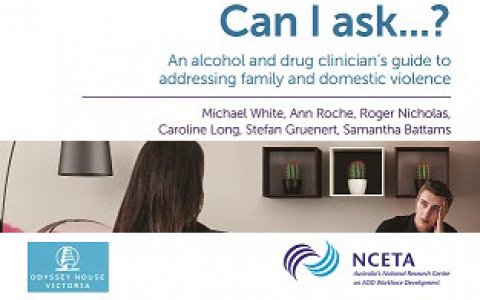NCETA’s Can I Ask…? used to inform policy developments in the United Kingdom
NCETA’s Can I Ask…? An alcohol and drug clinician’s guide to addressing family and domestic violencehas been used to inform the development of a number of high level and strategic policy initiatives in the United Kingdom (UK) that address the links between AOD use and intimate partner violence.
Examples of NCETA’s work being used to influence policy and practice include:
- A Framework for working safely and effectively with men who perpetrate intimate partner violence in substance use treatment settings. The Framework was developed by a consortium led by the National Addiction Centre, King’s College London. It draws on and adapts, for UK settings, the strategies for identifying and responding to FDV that are outlined in NCETA resource. In particular, the Framework covers topics such information gathering/disclosure; role clarification/legitimacy; and a range of systems and organisational responses including professional development to support AOD workers dealing with FDV issues with their clients.
- Guidance on working with domestic violence and substance use. This document has also been developed by King’s College London and complements the Framework. It provides AOD workers in the UK with a list of resources on guidelines or good practice on working with intimate partner violence victims and perpetrators who use substances. In referring workers to NCETA’s resource, the guidance notes that NCETA’s Can I Ask…? An alcohol and drug clinician’s guide to addressing family and domestic violence explores the relationship between AOD and FDV with a focus on identifying how the AOD sector can better support clients who have co-occurring AOD and FDV issues.
- Drug misuse and dependence: UK guidelines on clinical management. The Guidelines, developed by the Department of Health (England) and the Chief Medical Officers of the UK contain a section on Intimate Partner Violence which refers UK workers to NCETA’s Can I Ask…? An alcohol and drug clinician’s guide to addressing family and domestic violence resource.
According to Professor Gail Gilchrist from King’s College London, “NCETA’s resource is one of the few works of its type in the world that addresses the complex relationship between AOD and intimate partner violence while providing practical advice and guidance for frontline workers”.











